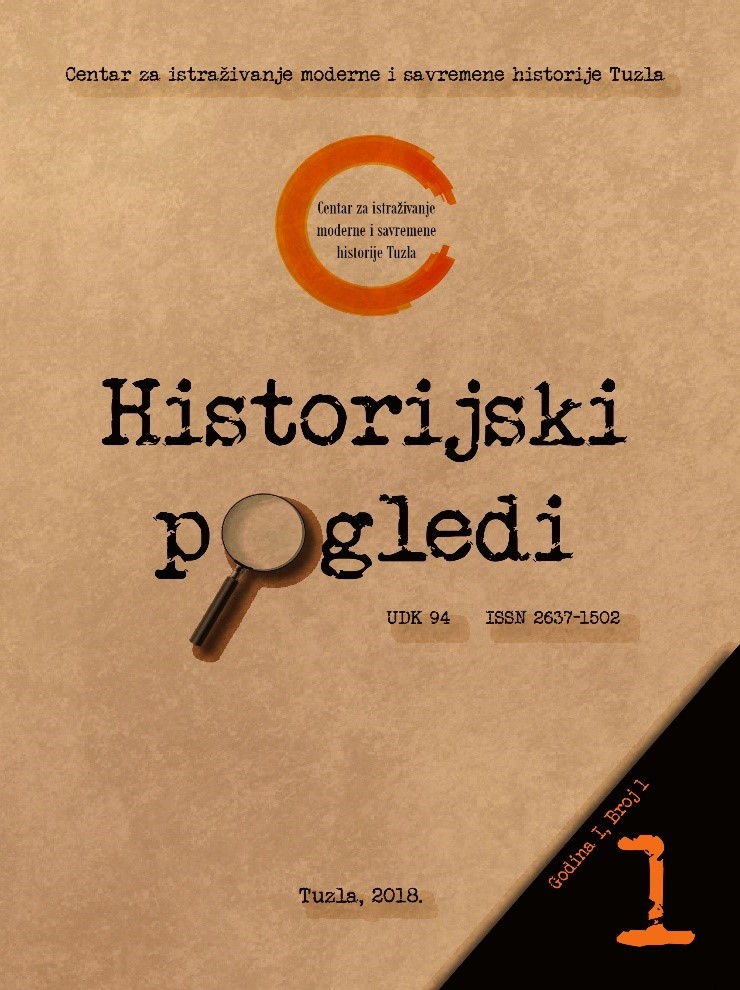OSNIVANJE BIBLIOTEKA U SJEVEROISTOČNOJ BOSNI POSLIJE DRUGOG SVJETSKOG RATA, S AKCENTOM NA OSNIVANJE I RAD NARODNE BIBLIOTEKE U TUZLI U PERIODU 1945 – 1953. GODINE
ESTABLISHMENT OF LIBRARIES IN THE NORTH-EAST BOSNIA AFTER THE SECOND WORLD WAR, WITH FOCUS ON THE WORK OF NATIONAL LIBRARY IN TUZLA BETWEEN 1945 AND 1953.
Author(s): Jasmin JajčevićSubject(s): History, Cultural history, Library and Information Science, Library operations and management, Local History / Microhistory, WW II and following years (1940 - 1949), Post-War period (1950 - 1989)
Published by: Centar za istraživanje moderne i savremene historije Tuzla
Keywords: Bosnia and Herzegovina; northeastern Bosnia; Tuzla; libraries; founding; work; National library in Tuzla; books; reading rooms; readers;
Summary/Abstract: Cultural policy in Bosnia and Herzegovina after the Second World War was aimed at strengthening the network of cultural, scientific and other institutions. Libraries had an important place within institutions. The new government helped build libraries and provided them with material resources. A large number of professional and special libraries of different rank and significance have been established. By establishing libraries after the Second World War, efforts were made to encourage the interest of the population in the book, and this was achieved by using various ways of agitating and popularizing libraries. Libraries began to be established in all places in northeastern Bosnia where conditions existed. Opening of city, town and local public libraries. Libraries and reading rooms were closely linked to the literacy of the population. As one of the more active forms of enlightenment, the advantage was that they were accessible to the broadest masses, they did not cost much and could easily be organized and maintained. The work on the opening and renovation of libraries and reading rooms was particularly intense in the aftermath of the Second World War. At that time, libraries were established in all major administrative centers, thus establishing a network of libraries in northeastern Bosnia. On the establishment of libraries in northeastern Bosnia after the Second World War, with the emphasis on the establishment and operation of the National Library in Tuzla, and with which problems and shortcomings they encountered, will be discussed in this paper.
Journal: HISTORIJSKI POGLEDI
- Issue Year: I/2018
- Issue No: 1
- Page Range: 198-217
- Page Count: 20
- Language: Bosnian, Croatian, Serbian

